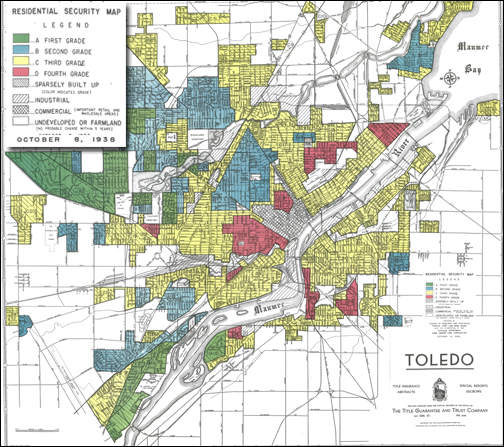|
While it is true that too
many people among all socio-economic groups suffer the
negative consequences of not having a budget or piling debt
excessively on credit cards, the reality is that today, just
as in the time of Jesus, poor and working class individuals
are under excessive pressure to pay for mere basic
necessities.
Many of these urgent needs
result in payments to ruling entities in the form of
utilities, direct or indirect taxes and housing provided by
“absentee” landlords. Many of the residents living in core
city communities then, also unable to feed themselves, find
that their only recourse is to borrow from wealthy creditors
such as payday lenders that build their massive corporate
wealth by taking control of the meager assets of the poor
via oppressive interest costs.
As a result, poor and
working class people come up short month after month, get
deeper and deeper in debt, lose their only source of income
and livelihood and get sold into a modern system of slavery
to cover their debts.
The Moral Requirement?
The current challenge is
to liberate people from an exploitative system that enslaves
and destroys individuals and families.
On March 9, 2017 The Plan
Commission unanimously approved Payday and Auto-title Loans
legislation to provide zoning restrictions designed to limit
the number and concentration of these short-term predatory
and exploitative loan providers. The City Council’s Zoning
and Planning Committee will consider the proposal on April
19.
How Shall We Meet the
Requirement?
Often it is the presence
of black gatekeepers on the inside, who have a tendency to
act “as if their job is to protect their white bosses from
the poor and people of color.” So our biggest obstacle may
well be black people who are in a position intellectually,
financially and politically, but who not only will not help
- but will also hinder our efforts for justice and fairness.
For certain, we have lost
the unity of purpose that we used to overcome the injustice
in past turbulent periods and is now required to fight the
“demonic” policies of today’s billionaire class.
Thus, a politics of
solidarity and reciprocity between and among black Americas,
is imperative. “We must build a politics of solidarity and
reciprocity between black Americas – plural,” says Keri Day,
PhD. “There is no such thing as black America. There are
black Americas,” she adds.
“And in terms of black
America, not just contemporarily, but historically, there
have been ways which the interests and longing within these
various communities have converged but also ways in which
our interests and longings have diverged. You ask most
middle-class and upper-class black people today, even within
black churches, they will say that they don’t feel it’s
their duty to help the black poor. It is a problem of class
stratification both within the black church and black
community as well as within the broader society.”
Certainly, a long-term
strategic approach to economic development in the core
central city will need to take place.
In the meantime, however,
with a sitting African-American Mayor, Paula Hicks-Hudson;
five African-American City Council members – Tyrone Riley,
Yvonne Harper, Cecelia Adams, Theresa Gabriel and Larry
Sykes; as well as numerous African-American religious
leaders, black community leaders and politically active
residents – we can and must, with a collective and unified
approach, respond to the needs of those suffering through
the politics and resulting economic conflicts of borrowing
and exploitative lending.
After all, it was Jesus
who said that we all should pray: “Cancel our
debts, as we herewith cancel the debts of our debtors.”
Contact Rev. Donald Perryman, D.Min, at
drdlperryman@centerofhopebaptist.org

|